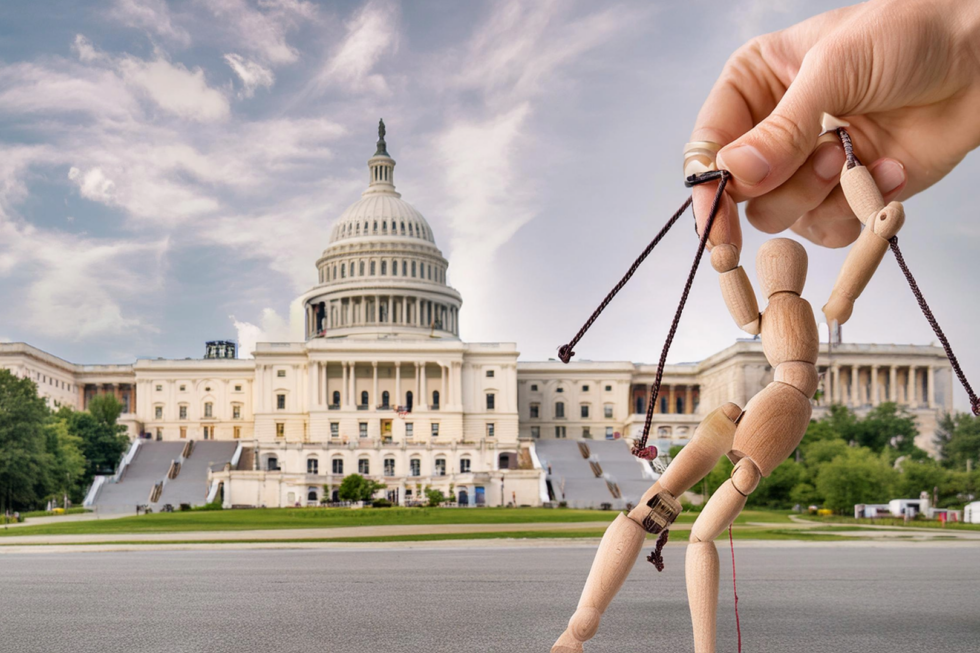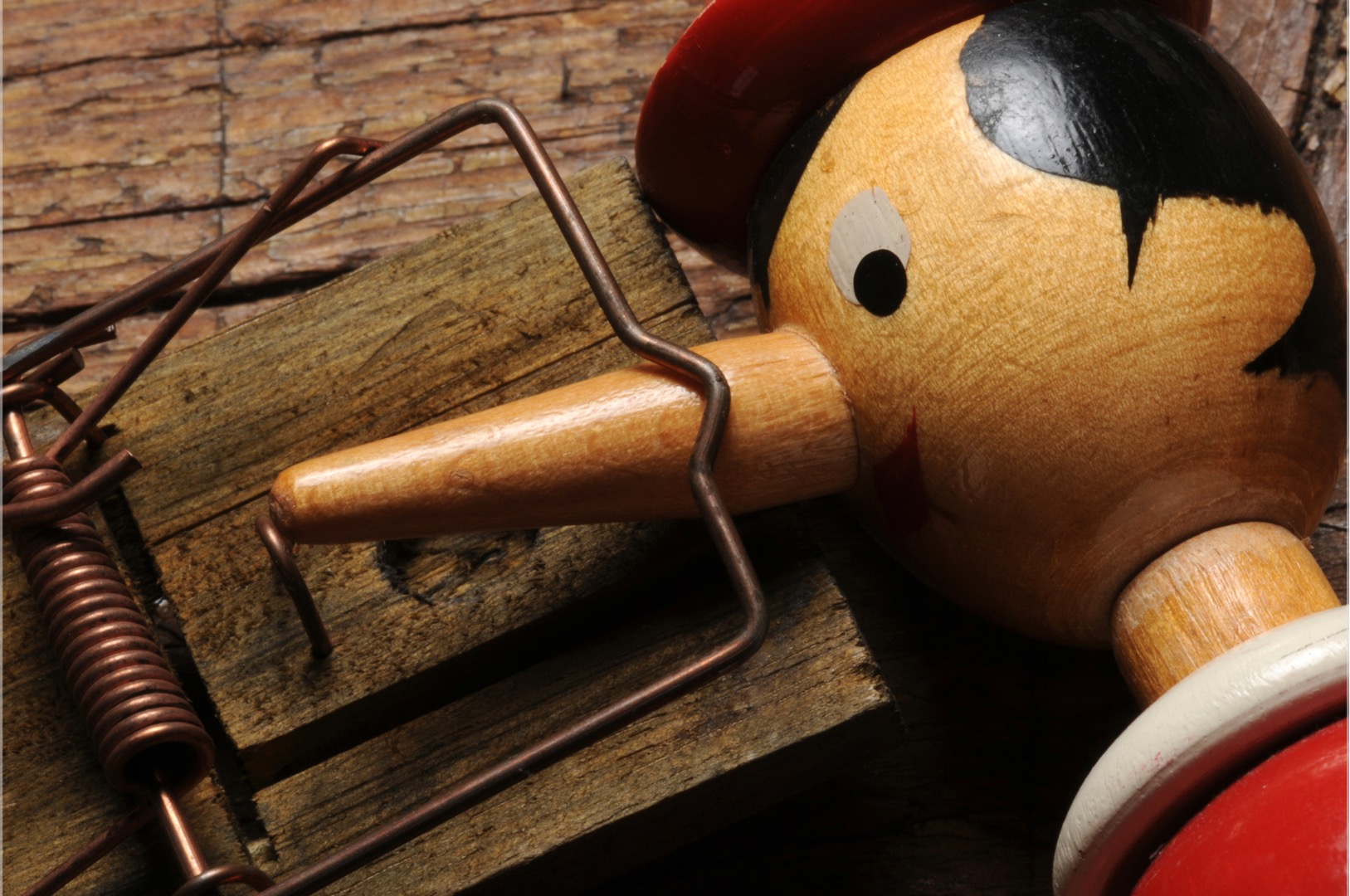
Fake Inventors Pushing Bad Law for Real Inventors
After eleven years walking the halls of Congress, I’ve learned a few things. The most important is that more than half the members of Congress are good people who look out for their constituents. They value feedback and try to improve the lives of the people they represent.
But that doesn’t mean they understand the laws they pass. In fact, most members do not. Instead, they rely on others to explain them. Of the multitudes of issues they face, patent law is among the least understood. Those trusted to explain patent law can easily mislead members to get bad laws passed.
Corporate lobbyists have brought manipulating member naïveté to the level of a fine art. Their misinformation caused members to gut the U.S. innovation engine that once drove America to lead the world in every technology revolution, from potash processing to smartphones.
The result is obvious. China now leads the world in 37 of 44 technologies critical to our national security and economic growth. It is a national security crisis that will soon be a disaster if it is not fixed.
Most Members Seek Voting Advice
If a member does not understand a particular issue, they just ask their favorite member on whatever committee is writing the law. In patent law, that is the Judiciary Committee’s IP Subcommittee.
Because IP Subcommittee advice is critical to passing legislation, corporate lobbyists flood the IP Subcommittees with one-sided explanations, use cases, evil villains, and everything else needed to answer off-committee member questions in the way the corporate lobby wants them answered.
Corporate lobbyists lubricate the process with campaign contributions, PR campaigns, member awards, and much more to ensure that off-committee members receive the corporate answers.
The good news is that many members seek the opinions of those affected by patent law, including small inventors. Therefore, getting little guys to support legislation is critically important to passing it.
Passing the America Invents Act of 2011
The America Invents Act of 2011 (AIA), the worst disaster to ever befall U.S. innovation, created the Patent Trial and Appeal Board (PTAB) inside the U.S. Patent and Trademark Office (USPTO). The USPTO grants a patent, and the PTAB invalidates the same patent at the request of the huge corporations that stole the invention. It does this in a proceeding significantly biased toward the infringer without a jury and without due process.
Former USPTO Director Michelle Lee, who was previously the Vice President of Patent Strategy at Google, weaponized the PTAB to invalidate 84% of the patents it fully adjudicates. No subsequent USPTO Director has corrected the PTAB’s innovation-destroying kill rate.
To pass the AIA, the corporate lobby conjured up a cartoon character called a patent troll that they said was destroying U.S. innovation. The corporate lobbyists spent tens of millions of dollars filling the Congressional airwaves with their cartoonish false narrative and then showered IP Subcommittee members with millions of dollars to pass the AIA.
But to get it passed, they needed inventors to get behind it. For that role, they found a patented inventor named Louis Foreman. Foreman is the CEO of Enventys, a product development and prototyping company, and Inventor’s Digest, a magazine for inventors. Foreman was also on the board of the Intellectual Property Owners Association (IPO), an IP trade organization representing large corporations.
The corporate lobby elevated Foreman to be perceived as the universal spokesman for the inventor community, making him a regular panelist at corporate lobbying events and parading him through Congress.
In exchange for this notoriety, Foreman collected signatures supporting the AIA at the National Hardware Show and published many articles supporting the AIA in Inventor’s Digest. All the while, the corporate lobby advertised in his magazine, and their PR engines drove favorable coverage for his companies, thereby helping Foreman attract new business from inventors.
With the corporate lobbying machine hitting on all cylinders, Foreman was making a tidy profit and significantly growing his companies.
When off-committee members asked their favorite member on the IP Subcommittee how to vote, they were given the entire corporate lobbying package, including Foreman’s seemingly credible support.
Nobody questioned Foreman’s motives or those of the corporate lobbyists who pushed him to the front. Instead, members took Foreman at face value.

That corporate lobbyist ruse is how the AIA was passed, thereby creating the PTAB and destroying U.S. innovation.
Today, More of the Same
Today, the corporate lobby is once again in full swing pushing PREVAIL and PERA. Both are patent-related legislation introduced in the Senate. PREVAIL has also been introduced in the House.
PERA and PREVAIL are terrible for inventors, who adamantly oppose it. See here, here, here, here, here, here and here.
While the legislation is good news for Big Pharma and Big Tech, which enjoy monopolistic markets and hate competition, it will not help inventors nor will it help the U.S. take back the global technological lead from China. In fact, these bills will delay fixing U.S. innovation by ten or more years as the courts decide what the undefined words mean, making it virtually impossible to retake that lead due to the petri dish effect.
Nevertheless, the corporate lobby is being paid big money to get these bills passed. To get the job done, they need an inventor to endorse the legislation.
After a couple of false starts, they finally found a guy named Charlie Sauer. The strange thing is Sauer is not an inventor. He has no patents, he has never started up a company by collateralizing patents, nor has he licensed any patents.
Sauer is not even close to any patent-related industry. He began his career on Senator Grassley’s staff and never left the Hill. Sauer now runs a free-market advocacy organization, yet he ironically advocates for government interference in private property rights by supporting these bills.
But ignoring all that, the corporate lobby promotes Sauer as just as good as an inventor in Hill meetings and as a panelist at their corporate lobbying events.
To Sauer’s credit, he runs an occasional newsletter called the Inventor Project. I could not find a website, but Sauer proudly touts his mailing list of 100,000 people. The list may include some inventors, but Sauer does not make that claim. Nevertheless, his outgoing mailing list is all that underpins his claim that he speaks for inventors.
Sauer once wrote a book called Profit Motive, so he understands how to profit from payments made to him by Qualcomm and Phrma for posing as an inventor to pass legislation favorable to his paymasters but damaging to inventors, the very people he claims to speak for.
Masquerading as an inventor, Sauer is a key part of an all-out corporate lobbying effort to pass legislation that perpetuates the serious damage already done to U.S. innovation.
Congress Must Get Serious about U.S. Innovation
The core duty of Congress is to protect American liberty and rights. Congress pathetically failed that duty when it passed the AIA. The AIA precipitated a national security disaster by enabling China to leapfrog the U.S. in technology critical to our national security and economic growth.
If Congress intends to fix this mess, it must see the corporate lobby for what it is.
That is not difficult to do. After all, the corporate lobby could not be more blatant and misleading in their enlistment of self-serving people cloaked as inventors to deceive Congress into believing bad legislation is good.
It is time for Congress to find the truth in the sea of corporate lobbyist lies and, this time, fix U.S. innovation in the right way.
Congress should kill PERA and PREVAIL and pass Thomas Massie’s bipartisan bill, the Restoring America’s Leadership in Innovation Act, or Marcy Kaptur’s bipartisan bill, the Balancing Incentives Act.
Paul Morinville is Founder and Executive Director of SPARK Innovation. SPARK Innovation strives to create an policy environment where the conception, protection, and commercialization of technologies critical to our economic and national security prosper thereby enabling the United States to take back the global technological lead from China. Paul is an inventor and has been an executive at multiple technology startups including computer hardware, enterprise middleware, video compression software, artificial intelligence, and medical devices, and has licensed patents in the U.S. and China.







It appears there is a government department, that is 100% CUSTOMER FUNDED, that is ENGAGING IN SELLING DOCUMENTS TO CUSTOMERS PROMISING CUSTOMERS THEIR EXCLUSIVE RIGHT TO PROTECT THEIR INVENTIONS AGAINST INFRINGEMENT, but instead of fulfilling this CLEARLY STATED PROMISE, INVITE THE INFRINGERS OF THEIR CUSTOMERS’ PATENTS TO PAY A FEE, whereupon a group of vengeful individuals, who are NOT APPOINTED JUDGES, TO BLOW AWAY the customers’ right to protect their inventions. This is an exceptionally unambiguous example of a con.